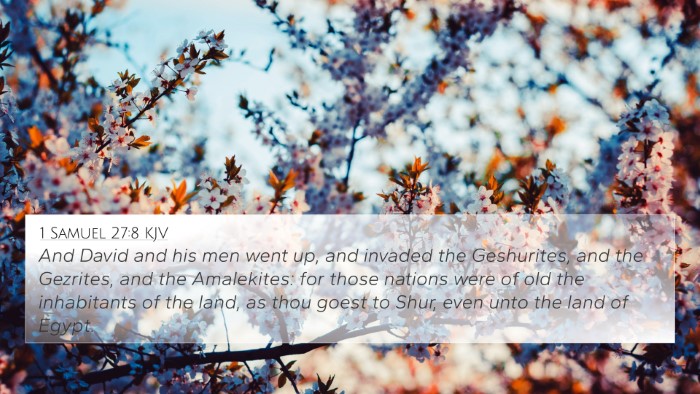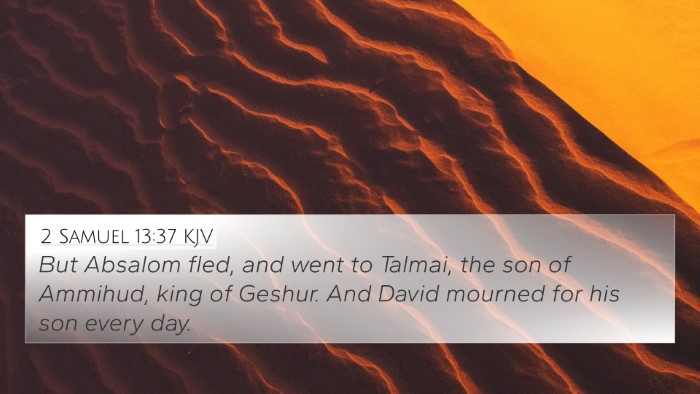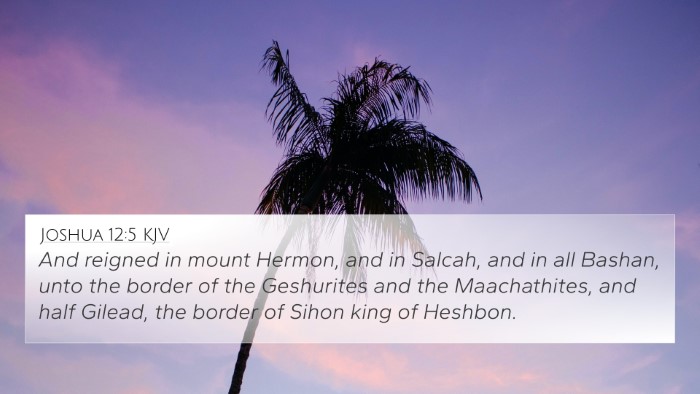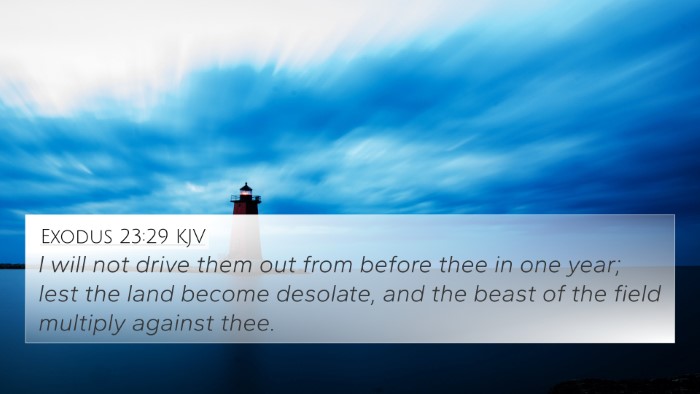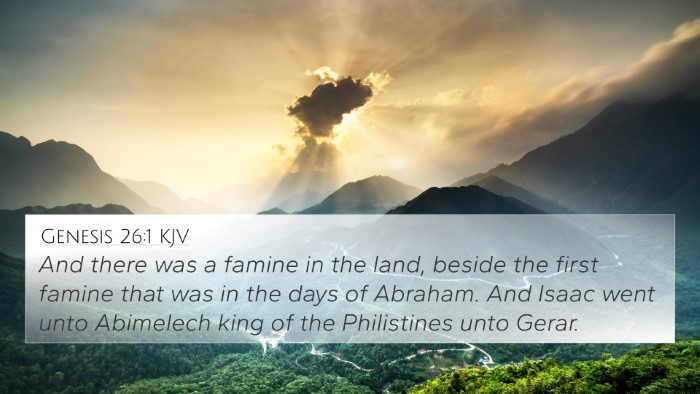Understanding Joshua 13:2
The verse Joshua 13:2 states: "This is the land that yet remains: all the region of the Philistines and all Geshuri." This verse marks a transitional moment in the narrative of Israel's conquest of Canaan. Below, we explore its meanings and implications by synthesizing insights from well-known public domain commentaries.
Context of Joshua 13:2
At this point in the book of Joshua, the Israelites have made significant progress in taking possession of the Promised Land. The mention of remaining territories signifies unfinished business and the necessity to complete God’s directives.
Summary of Commentary Insights
Matthew Henry's Commentary: Henry emphasizes that the verse reflects God's ongoing promise and the regions that the Israelites must still conquer. He interprets the land mentioned as a reminder of the enemies that remain, suggesting a need for vigilance among the Israelites. The Philistines, being a powerful adversary, represent the spiritual battles believers face today.
Albert Barnes' Notes: Barnes elaborates that this verse serves as a list of territories the Israelites had yet to possess. His analysis highlights the geographical and historical significance of Geshuri and the Philistine territories, framing the realization that the task of claiming the Promised Land is not yet complete.
Adam Clarke's Commentary: Clarke indicates that the mention of these regions demonstrates a divine strategy in allocating land, urging the Israelites to acknowledge both progress and the remaining challenges. He points out that understanding his placement in the land is crucial for the Israelites' identity as God’s chosen people.
Cross-References and Thematic Connections
- Exodus 23:31: God promises not to drive out all enemies at once, symbolizing intentional patience in spiritual growth.
- Numbers 33:51-54: Details God's command to take possession of the land, providing a foundational background to Joshua 13:2.
- Joshua 11:23: Mentions the completion of the conquest of the land, which directly ties to the remaining challenges in Joshua 13.
- Judges 1:18: Relates to the struggle of the Israelites against the Philistines, showcasing the ongoing conflict even after Joshua's leadership.
- 2 Samuel 5:17: Discusses David's battle with the Philistines, highlighting the enduring nature of this enemy.
- Psalms 60:8: This verse paints a picture of God's sovereignty over various nations, including those mentioned in Joshua 13.
- 2 Chronicles 28:18: Offers insight into the Philistines' involvement in Israelite affairs, underlining the region's significance throughout Biblical history.
- Isaiah 14:29: Discusses the implications of the Philistines for God’s people, insinuating the ongoing spiritual warfare.
- Acts 13:19: References God giving the land to His people, encapsulating the overall story of divine promise and fulfillment.
- Romans 8:37: Draws a parallel to the spiritual victories believers have through Christ, reminiscent of the Israelites’ conquests.
Thematic Implications
This verse's themes can be further explored through tools for Bible cross-referencing, enabling deeper connections in study:
- Understanding the importance of divine commandments in relation to earthly battles.
- Recognizing ongoing spiritual challenges that parallel the historical conflicts faced by the Israelites.
- Encouraging reflection on personal faith journeys, relating them to the Israelites’ conquest.
- Exemplifying God’s patience in waiting for His people to fully yield and respond to His commands.
Practical Applications
As one studies Joshua 13:2, several lessons become apparent for contemporary believers:
- Spiritual Vigilance: Remain aware of the challenges that persist in personal faith journeys.
- Completion of God's Work: Seek the completion of God's promises in your life, understanding that spiritual growth is an ongoing process.
- Encouragement Through History: Draw strength from the historical narratives of Israel, realizing that God’s faithfulness extends to present circumstances.
Conclusion
In summary, Joshua 13:2 encapsulates an essential truth for the people of God: even as victories are won, there remain battles to fight. Through the wisdom encapsulated in the commentaries of Matthew Henry, Albert Barnes, and Adam Clarke, we glean rich insights into the ongoing promise of God and the call to pursue completeness in faith. Use this verse and its connections as a springboard for deeper study and understanding of Scripture, correlating with your spiritual journey and the rest of the Biblical narrative.





